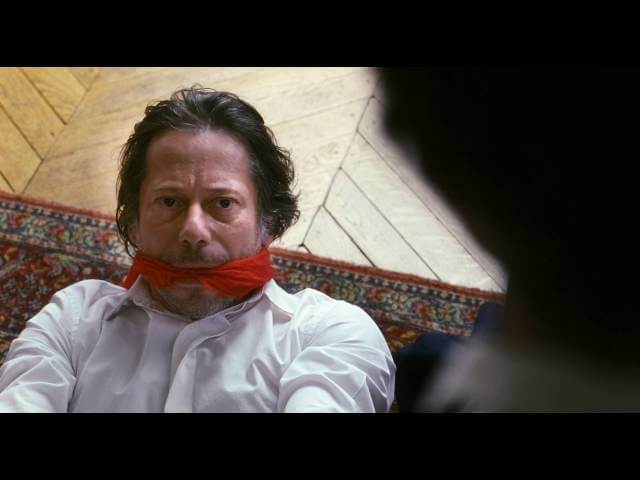Filmmaker Eugène Green on making a place for religion in the modern world

One of the great eccentrics of contemporary film, Eugène Green only began making movies in his mid-50s, after a career as an educator and specialist in baroque theater. Since releasing his debut, Toutes Les Nuits (2001), the writer-director has gone on to create a distinct and unusual body of work, influenced by baroque and medieval forms, fascinated by the power of language, and marked by a droll formalist sensibility and humor that brings to mind Robert Bresson. Green’s latest, The Son Of Joseph, is arguably his most accessible film to date, an offbeat modern-day fable that riffs on Christian imagery and modern life through the story of a sullen French teenager (Victor Ezenfis) who goes in search of his supposed biological father, an insensitive and philandering book publisher (Mathieu Amalric).
An American expat who has been a naturalized French citizen since the 1970s, Green now speaks English with a halting accent and an unplaceable cadence—a fact that is echoed toward the end of this interview. Green spoke to The A.V. Club last fall while The Son Of Joseph was playing at the New York Film Festival.
The A.V. Club: In your last film, La Sapienza, you introduced a paternal theme. It’s front and center in The Son Of Joseph.
Eugène Green: Yes, it’s only in these last two films. It’s a question of transmission, because one of the biggest problems of our contemporary civilization is that there’s been an interruption of transmission. People have no past in their present. When you see people on the street, they’re living in their phones. They aren’t living where they are—they haven’t got the energy of the past. And so it’s something that needs to be reestablished. It used to be parents that transmitted things to their children or teachers in school. But [I] think that it can take other forms also. That’s one of the themes in The Son Of Joseph, the idea that the father is not necessarily the biological father—the father is the one who transmits love to someone that is young. And it goes in both directions. Mature people transmit to young people a certain wisdom that comes from maturity, but young people are close to a more intuitive wisdom, and they can give that back to older people who have lost it to their maturation.
AVC: But besides that metaphorical aspect, parenting is an old theme.
EG: Well, it’s one of the bases of all human existence—the relation between parents and children, whether biologically or metaphorically. It’s something we can never get away from, even in a civilization where we’re controlled by robots. It’s the basic relationship between mature people who represent paternal and maternal figures and young people. It’s universal—it’s part of human existence. It’s always been that way, and it will always be that way if humans remain around.
AVC: I know you’re interested in cathedrals and architecture in general. I’m thinking of something Henri Focillon wrote about medieval cathedrals. He called them “encyclopedias of stone,” because of all the information they contained.
EG: The problem now is that there’s too much information, and there’s no hierarchy. Like on the internet, for example. The information that was contained in a cathedral was based upon a common culture—a common Christian culture—and the elements were chosen for a common symbolic meaning. Someone who knew everything that was represented in a cathedral had a sort of encyclopedia—you can indeed call it that—but it was a selective encyclopedia, like encyclopedias back when they were books and the people writing them were supposed to be specialists in their field. I think today the problem is that people don’t know how to choose between different kinds of information.
 Keep scrolling for more great stories.
Keep scrolling for more great stories.
